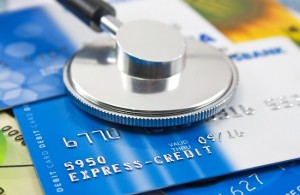The day you’re laid off can be one of the worst days of your life. If you are unemployed, you know how challenging the job market is and how hard it is to find a new job. One thing you may be worried about is your credit, and whether your credit will take a hit while you are unemployed. Here are some things you need to know about unemployment and your credit.
Evaluate Your Savings

Unexpected unemployment is a major reason why experts suggest having a cushion of savings of at least 3 months (and preferably 6 months or more). If you only have a few hundred dollars in your savings account, you may need to look into a temporary source of income for a few months. Picking up a few part-time jobs may help you get some income as you look for a rewarding new career but it could affect your eligibility for unemployment so be sure to check on that first.
Credit Counseling
Losing a job will not impact your credit rating, though relying on your credit cards will. If you have a lot of debt, or if you start racking up debt on your credit cards, you will see an impact on your credit rating. If you are already trying to pay accumulated debt off, the best option to consider is working with some nonprofit credit counselors. The credit counselors can help you create a payment plan for your debt. If you lose your job, some creditors will actually allow you to delay payments for a few months as you look for a new line of work.
The other thing credit counselors can offer is helping to negotiate lower payments. They can work with creditors to reduce interest rates and monthly payments, making it easier for you to pay back the money you owe. The most important thing to remember when you are unemployed is to avoid creating new debt. It can be tempting to consider a second mortgage, a personal loan, or using credit cards. Avoid using new debt to pay for your living expenses and other debts. Eventually the money will run out, and you will be left in a worse financial position.
Unemployment Benefits
It is important to look at what options you have to supply you with income while you are unemployed. It is a good idea to find out if you qualify for unemployment benefits. These benefits can be helpful, as they offer 60% or more of your previous income. This can help you pay the majority of your bills. If you are able to work on your finances, you may find that you can trim your expenses so that unemployment pays for all of your needs while you look for a new job.
Job Search
As you look for a new job, be open-minded. It will not be easy to find a job that meets all of your wants, so consider looking for one that you know you can do and will pay for your needs. Look for a company with a good history of retaining its employees. Stability is as important as getting a job with a huge salary, as it makes you less vulnerable to layoffs when the company wants to trim its budget.
